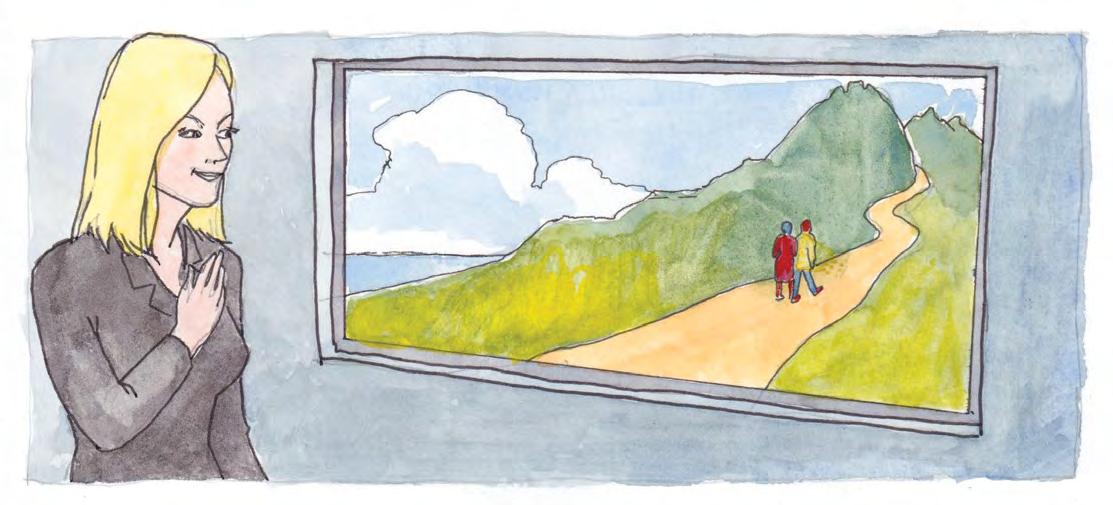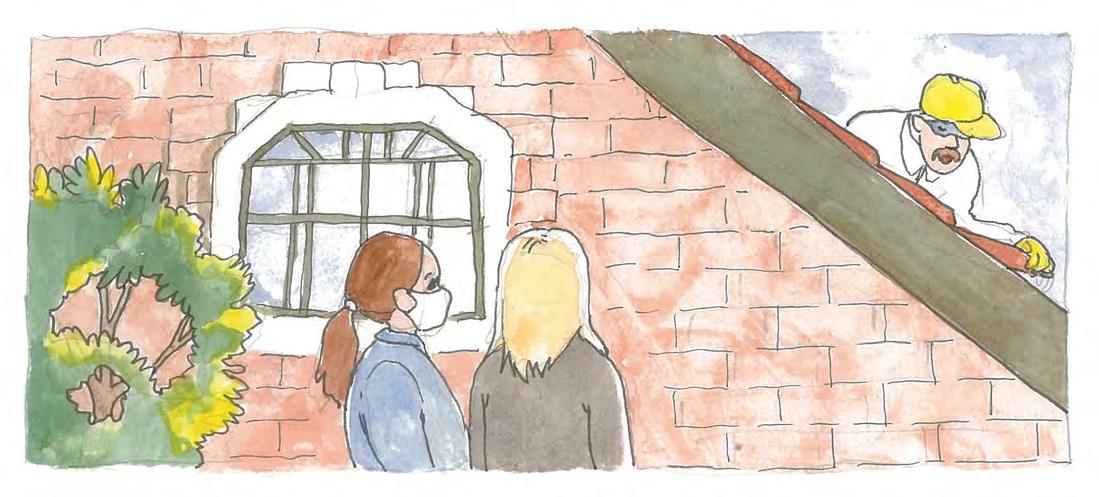
12 minute read
Connectivity at a heart level
Thea smiled. “Bree thought that she had to remain in her current state of grace to do the needed work, but instead, she was met by so much grace. The theme of gratitude comes forth for me. Bree showed gratitude for being welcomed in and honored by the man’s life stories. She left with a hopeful heart and some good lessons learned.”
The group ended the reflection by looking at how God played a role in Bree’s meeting with the homeless man. Thea reminded them of the scripture verses from Mark 12:31, ‘Love your neighbor as yourself. There is no commandment greater than these.’ Alex called out the next one. “This one comes from 1 Peter 3:8, ‘Finally, all of you, be like-minded, be sympathetic, love one another, be compassionate and humble.’” Debra smiled. “My favorite is this one from Gen. 1: 27, ‘So God created humankind in God’s own image, in the image of God, God created them.’” At the end of the class, each student was given a story to work through independently at home. They were given a simple task: Write a short essay on your reflections on the story; what struck you? What were your ‘aha’ moments? What did you learn from the story? How can you connect it to your faith experience? Amy received the story written by TC, a leader at the university.
Advertisement
My story is written in the form of diary entries.
15 October 2020
We are about 11 months into the COVID-19 pandemic, and so much is changing around me. The level of fear and anxiety is great. Last night I was contacted by Emma (not her real name), a friend and former patient. I had worked with her years ago, providing medical psychology-type services. As a clinical health psychologist, I specialized in helping people with medical problems, especially diseases that were often undiagnosed, poorly understood and poorly treated. Over the years, we became colleagues, and I haven’t seen her as a patient in a therapist capacity for several years. She’s now a healer with a master’s degree in Integrated Therapy in San Francisco.
Emma called just as I was having my morning coffee. She was distressed. She had been exposed to mold and other toxins when her house roof was being repaired, and it had thrown her back into a cycle of anxiety and pain. “TC, I need your help,” she pleaded. “I just need someone to listen to me who understands what I’m going through. Please can I call you a few times a week until I go for an Ayurvedic detoxification at that special clinic in Florida in midJanuary?” She has a therapist, a yoga instructor, a pain MD and a primary care MD. So she had a good idea of what she needed and a full team of experts caring for her as well. But she wanted me to listen so that she could begin making sense of her feelings.
17 October
Mom-in-law called this morning. She’s almost eighty-one years old and the rock of the family. She wanted me to help her with her anxiety after a cardiac experience a few years back, where she had gone into tachycardia, and her heart wouldn’t stop racing. “Teresa, you know I’ve had many procedures and tried many cardiac medications, but things just seemed to be getting worse!” she lamented. I suggested that she call me at least once a week and that I would listen to her. I would not offer any therapy but listen and, when needed, make some observations that could help her find a way out of her distress and anxiety.
23 October
I’m struck by how they both called around the same time during the stress of this weird COVID-19 pandemic, but I feel happy to help them. I’ve been talking to both, but I’m mostly just listening and offering general observations. I’ve made it clear that my role is listening and not being anyone’s therapist in these instances. I’m just supporting or walking alongside them. I’ve also taught them how to use self-care tools like the Emotional Freedom Technique or EFT and “tapping”, as it is known. I am struck by how useful those basic tools are for them and that they can do them on their own. It has been helpful to them, and it helps me feel more useful to offer a listening ear to them during these weird COVID-19 times.
Almost Nothing and everything
By Gary Gunderson
Brick, steel, thatch are good in storm but We cannot see in safety.
Light is Precious as Oxygen.
Window is more than glass; But never less. Close to nothing Not seen itself light alone.
Pivot, slide, lift and push Machinery to move aside. Glass is gift of absence.
Like a loving ear that adds nothing but is everything. Mirrors show only us again again again nothing more so much less.
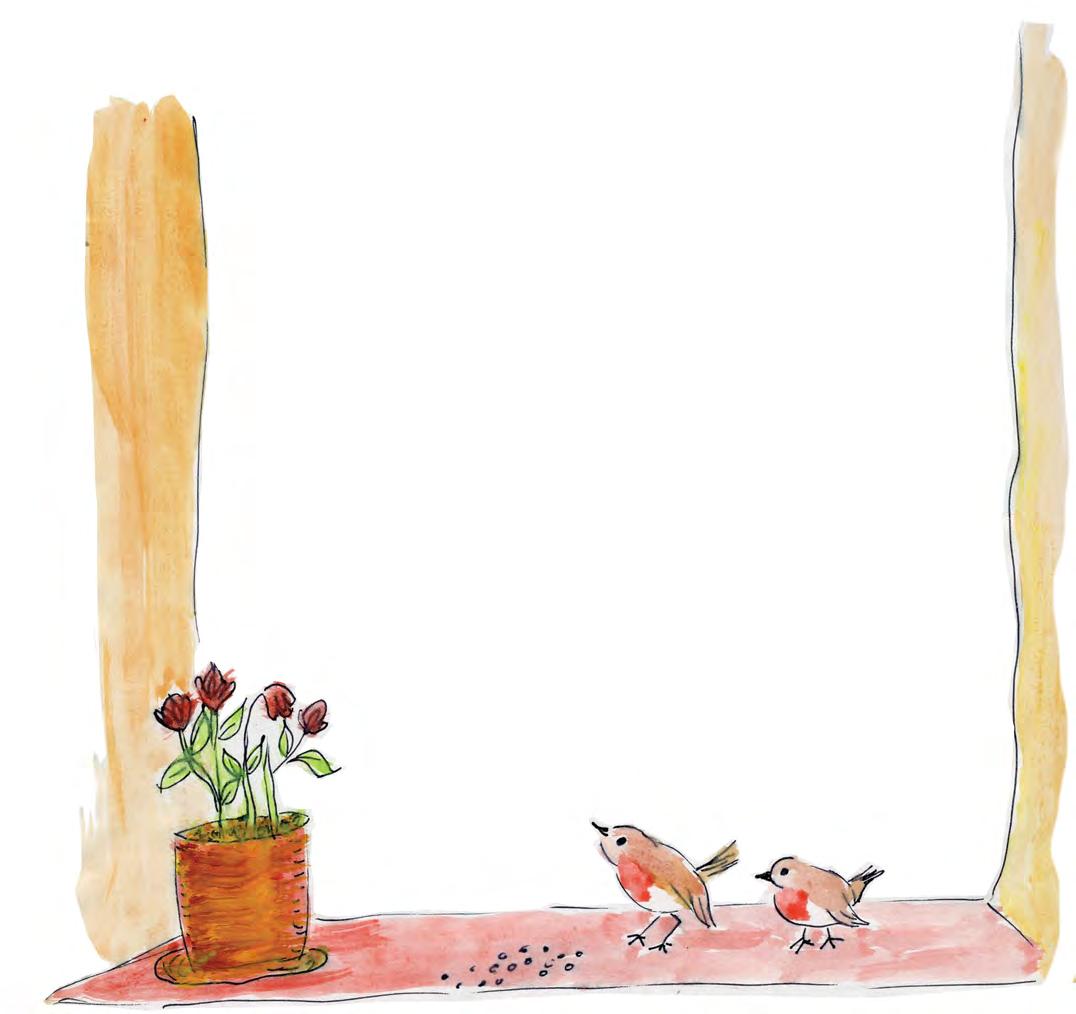
Glass invites beyond to where, with whom and who needs us.
Birds on window sills; Noticing, We delight and feed them.
Noticing ourselves feeding, We see.
25 October
I am so grateful for this opportunity to work with these strong women. Even though there is physical distance between us during this pandemic, our online connections are still intimate and filled with gratitude and love. I view both as healers themselves, as I believe in biological, psychological, social and spiritual healing and no behavioral, physical or medical health split for humans. I know that healing is more efficacious when one doesn’t set oneself up as the expert. Having the opportunity to listen and be listened to is a gift for them and me. I believe in the wisdom of the organism, of the innate ability of us all to heal, so I’m looking forward to these conversations to see how things unfold.
29 October
Even though we are in the midst of a terrifying pandemic, I’m feeling more connected to folks. And it’s because I’m just listening to my two ladies. They are grateful for my listening ear, but I think listening deeply is healing for me, too. It’s helping me remember what I do well and haven’t done in a long time. For so long, my work at Wake Forest has been more head work than heart work. Except for some community events and helping people, I’ve mostly been giving presentations and writing reports and academic articles in my work. I’m not licensed as a psychologist in North Carolina and don’t want to be. I don’t want to do traditional psychology or therapy work anymore. I don’t think it works very well in general. Traditional psychotherapy focuses on psychopathology, sometimes re-traumatizing people, and I want to focus on assets or strengths or people healing themselves.
3 November
I can see that resetting my role from being a therapist for my young friend and mother-in-law, and defining my limits of caring and competence, helps to remind them that they are the experts on their own bodies and decisions. I hammer the wisdom of the organism and that they know what to do; albeit, due to pain and anxiety, that’s been hard for them to remember and discern.
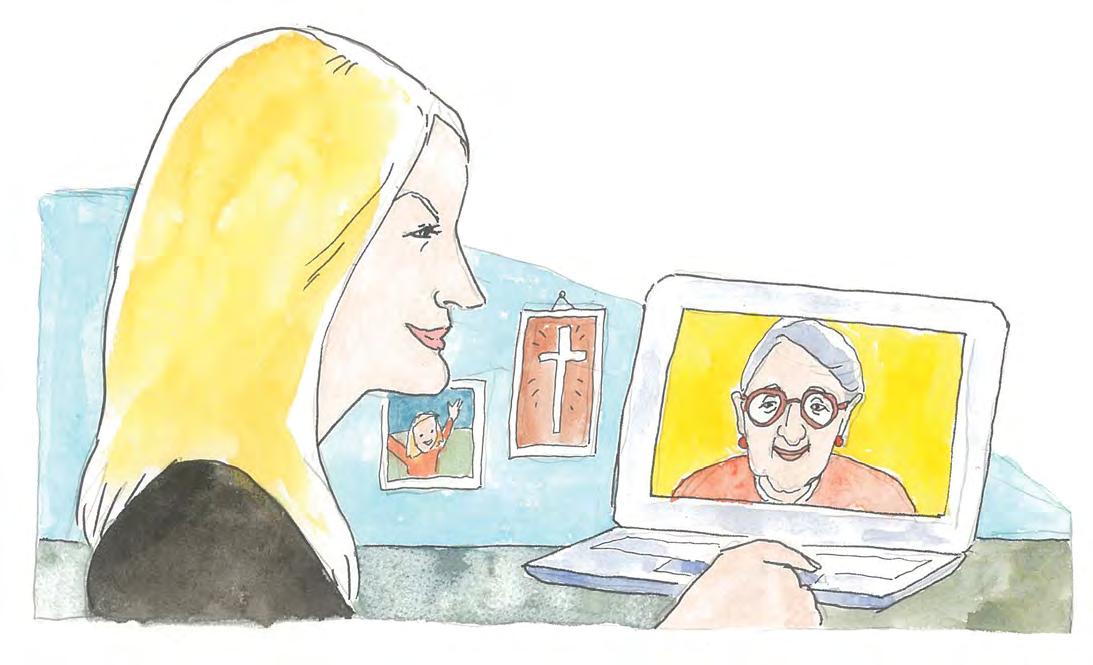
My mother-in-law is the stable, comforting rock in her family, but even rocks need support. She’s never had anxiety before, so I keep reminding her of medication side effects, the cycle of anxiety after painful or scary procedures, etc. She’s taking multiple medications and had a frightening time when they did a risky medical test on her heart in October. This highlights how I am growing ever distrustful of traditional allopathic medicine as well as psychotherapy—also a pathology focus versus assets.
6 November
Emotional Freedom Technique or EFT (tapping) has been mildly helpful to both my friends, mostly as an adjunct to medications, and their own coping tools that they already used; breathing, yoga, calming music, etc. EFT also is something anyone can do on their own, anytime, without me or anyone else, such as another therapist. During our time together, I support them, reminding them of their strengths, walking alongside them, and validating their suffering or anxiety, while not reinforcing any stuckness in that suffering. I am careful to not spend too much time helping, so as to limit dependency on me. I am feeling such wonderful connectivity at a heart level in this work, which was healing to me as well. Listening heals both parties: those listening and those listened to. Listening heals both parties: those listening and those listened to.
18 November
These sessions are awakening much inside me. I’m wondering if we can teach this type of deep listening to lay people. They could be lightly coached to do this in congregations and communities. Everyone can be trained to listen deeply. This can surely help to build resilience. There are big gaps in how we relate to congregations and communities when it comes to this type of caring or listening and asking members to help one another. There is such a need for healing in our world, with millions of deep listeners and healers to be deployed. Millions of healers exist in the world already, but many don’t see themselves as helpers or healers. Perhaps we can train more and help all realize that they are healers, even if they don’t think they are. We can help local persons, who are trusted in neighborhoods, to learn and deploy basic skills with their neighbors and community members.
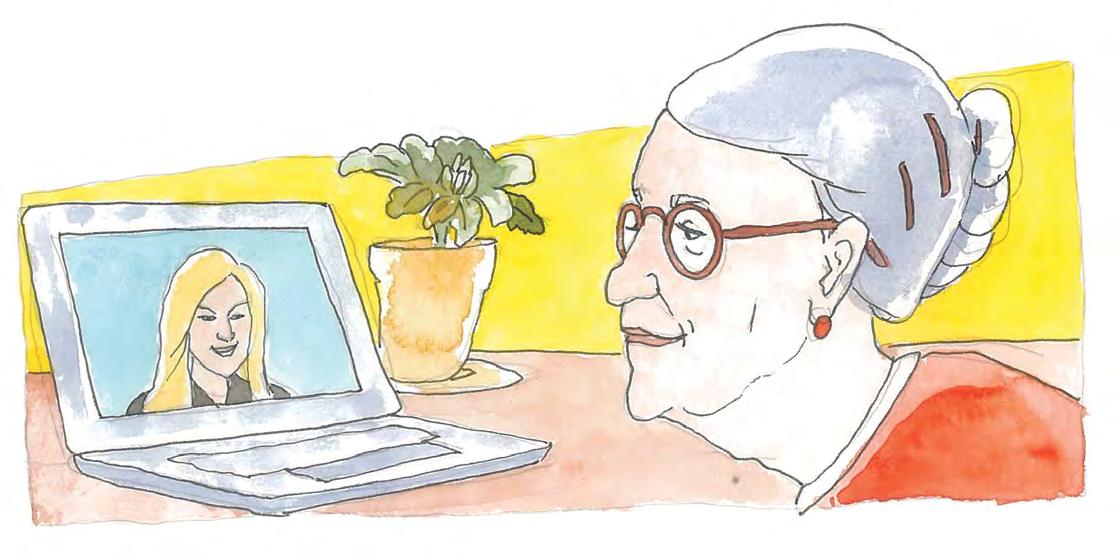
20 November
I’m thinking back on my time in Memphis when we were doing the training course on Hospital Visitation. I was working with some colleagues with a group of twenty interns. I remember that things were sometimes difficult for these young people, so our training mantra in that class became - “It’s not about you.” I think that’s a good starting place for deep listening. Maybe teaching community and congregational members some form of general, communitybased, pastoral counseling would work? Could we connect individuals one-on-one to talk and listen to each other for thirty minutes a week and see what happens? It would help. I am sure it would.
22 November
I watched a great old movie last night called Pay it Forward, and it got me thinking - could we pay it forward? That is, if you have had a deep listener, could you commit to being a deep listener for someone else in the future? I am reminded of that old acronym: Keep it Simple, Stupid or
KISS. How can we keep this simple, not insert too much professional therapytype language or teaching and still make it effective?
25 November
Last night, I spoke with a friend about simple, non-judgmental, non-directive listening as therapy and ways of paying it forward. He nodded enthusiastically, but I could see the doubt in his eyes. I know that some obstacles exist to this type of work or training. He listened and said, “TC, you know that everyone wants to professionalize this work instead of allowing people to be the healers they already are. Other programs already exist, like Stephens Ministry, with a big focus on in-depth training and clear limits of competence.” I agreed, but I also know that congregations and communities are often bombarded with other, longer training, like Mental Health First Aid. This training might be less formal. I tried to brainstorm some ideas with him; Could we do people’s strengths assessments for them and share that with the dyads ahead of time so that they will know more about one another? That would also move them toward thinking about assets vs. deficits or pathology.
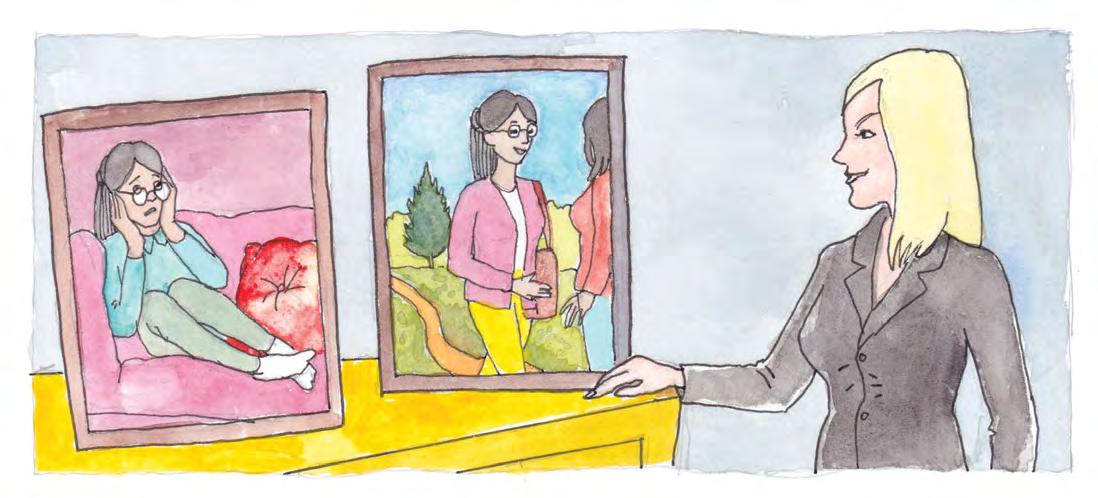
What would be most helpful or less invasive or intrusive to what should be an organic healing process? Doesn’t having an external supporter help more than friends or family, who have their own biases toward you and your life or work?
This type of work offered pro bono, exempts the need for record-keeping, reimbursements, payments, paperwork, billing, and licensure. It also doesn’t leave a long therapy paper trail for people who may feel overwhelmed and not want that level of care.
He listened and sighed, “There’s nothing new or sexy about these ideas of training a corps of listeners, just good hard work.” Well, it made me think about a poem I read a few weeks back from a trauma survivor. What I Want You to Know
I want you to know: Your job is not to deliver me from hurting. It is to provide empathy and spiritual guidance and to be a reflection of the qualities of God to empower me. To remind me of who I am in relationship to God. To bear tangible testimony to the existence and nature of God in the midst of the pain… So I might have peace even while I still hurt… You don’t need to answer all my questions, Just be there when I ask them And maybe you can be there along the way…as I gradually find the answers for myself. A survivor
Risking Connection in Faith Communities, Jackson Day, et al. (2006)
1 December
My friend, Emma and my mother-in-law are much better. Emma is feeling strong and ready for her Ayurvedic detoxification in January and my mom-in-law is being the solid rock again. I have a new window into the power of listening. I feel grateful that in these troubling times, I could be of use. We all want to be. The pandemic taught us the value of connection, of family and the importance of caring for each other. For me, I’m not sure that Head work is as relevant now as Heart work. Healing is a journey—we are never really done. Listening deeply helped us all to find Connectivity, Love, Peace and Warmth. Maybe that is the hard work that the world needs now to heal.
TC’s story made Amy think back to when she was a young child and a song her grandmother sang to her when she was upset. She had felt heard and comforted. Now she wanted to capture that feeling in her short essay. Healing is a journey— we are never really done. Listening deeply helped us all to find Connectivity, Love, Peace and Warmth. Maybe that is the hard work that the world needs now to heal.
